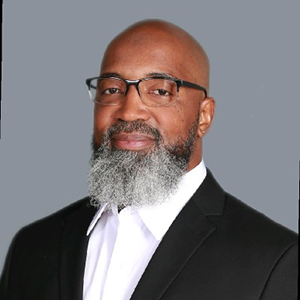A reflection on hope, opportunity, and the transformative power of education in the prison system.
 On Tuesday, August 20, 2024, I attended a leadership circle for at-risk youth aged 8 to 18. One thing stands out whenever I am around these young men: most of them are modeling their "swag" after athletes or musical artists. This is so eye-opening because I see myself in how these young men navigate their world. To say they are impressionable is an understatement.
On Tuesday, August 20, 2024, I attended a leadership circle for at-risk youth aged 8 to 18. One thing stands out whenever I am around these young men: most of them are modeling their "swag" after athletes or musical artists. This is so eye-opening because I see myself in how these young men navigate their world. To say they are impressionable is an understatement.
“New Boy” is an acronym for New Breed of Youth. The group began meeting at a storefront in Washington Square Plaza on the far east side of Indianapolis. Now, the group holds their meetings in a school building located on the far east side of Indianapolis, not too far from the original location. While attending the circle that day, the group’s facilitator and mentor stood before the young men and made a poignant observation. With words that carried the weight of years of dedicated service, he said, “I have been doing this work for over 20 years, and in all my time here, I have not attended one college graduation. Not one.”
None of the young men he had guided had gone on to college. Despite being there to witness their lives unfold in various ways—from their first days of work to sentences of incarceration, courtroom appearances, and intensive care visits, he had never once witnessed a commencement ceremony celebrating their academic achievement.
Just the day before, I attended Eastern University’s commencement ceremony at SCI-Chester, a prison in Chester, Pennsylvania. On Monday, August 19, 2024—Humanitarian Day—I had the honor of attending a college graduation in a place that was all too familiar to me: prison. I had spent 26 years incarcerated in the state of Indiana, with the first 11 years at Indiana State Prison, a facility that once held the infamous mobster John Dillinger. It was within the walls of this decrepit 100-year-old prison that I earned my four-year degree from Ball State. What I witnessed during Eastern’s graduation ceremony profoundly affected me, magnified 22 times over as I watched each of these men join the ranks of college graduates. Meanwhile, another eager cohort of students stood physically and metaphorically ready in the back of the gym, awaiting their turn to walk across the stage in the coming years.
The event was meticulously planned. From the moment I stepped into the prison gymnasium, it was clear that the event planner intended to transport these 22 men out of their current environment, even if only for a few hours. The video monitors positioned in the front of the stage displayed a film capturing the work that had gone into making the program a success. It was impressive to learn the video was entirely produced by incarcerated workers. Then, a brass band began to play “Pomp and Circumstance.” I watched as students and professors entered the ceremony. The choreography was perfect. I was not in prison again. I was far removed from the heavy and confined movements of institutional living. The environment looked and sounded like a college commencement ceremony, the ones that occur each summer on college campuses. The words of Dr. John Fantuzzo, the Director of Eastern’s Prison Education Program, rang true: “This is a college graduation.”
During the reception, I had the pleasure of reuniting with Dennis Horton and his brother Lee Horton, who both serve on the Eastern University Prison Education Program Advisory Team with me. These two men had once been incarcerated in that very prison. As I watched them move gracefully through the crowd—shaking hands, talking with staff and friends, many of whom they had left behind—I couldn’t help but reflect on their incredible journey. Their work at SCI Chester, particularly in developing the “Little Scandinavia” unit, has been groundbreaking.
This unit, born from a multiyear partnership with the Norwegian Correctional Service, the Swedish Prison and Probation Service, and the Danish Prison and Probation Service, represents a radically holistic approach to incarceration. In 2019, Pennsylvania Department of Corrections employees traveled to Scandinavia to observe these holistic methods firsthand, and criminologists from the United States and Norway continued to study the project, which officially launched at SCI Chester in May 2022.
The work spearheaded by the Horton brothers has not only shifted the mindset of public and prison officials but also paved the way for numerous other programs at the prison. Over the years of their confinement, they were very proactive in spearheading rehabilitative programs, a skill set in which they now utilized upon release in the social reform space. We first met during an Eastern University Prison Education Advisory Team meeting during the summer of 2022. The Hortons have inspired me to become more engaged in my city's governance, especially after witnessing their effectiveness in supporting now U.S. Senator John Fetterman (PA). They have since founded their own nonprofit organization, providing mentorship and recovery services for individuals in the military, prison, inner cities, and beyond.
Reflecting on this experience of returning to an environment where the “good of you” is a daily question, I am reminded of Charles Taylor’s articulation of “the good.” In his seminal work, Sources of the Self: The Making of the Modern Identity, Taylor suggests that “a vision of the good becomes available for the people of a given culture through being given expression in some manner” (91). At SCI Chester, these men were given a vision. Still, it was more than a vision or even a lens—it was a future of hope—an experience of “the good”— an experience that goes beyond a mentor’s admonitions and enters the realm of action, participatory reality.
The return on this higher educational investment is not simply a lower recidivism rate but a vision of the good for the 22 graduates and their children watching in the waiting room through a live-streamed video feed. What did those children see? They saw a college graduation celebrating their cousins, uncles, fathers, and grandfathers. In witnessing these two days—one marked by the mentor’s unfulfilled hope and the other by the realization of “the good” of a college graduation—I see the critical importance of offering concrete opportunities because being in the room of an actual college graduation and conversing with dynamic, influential leaders like Lee and Freedom Horton, is where actual transformation occurs.
I tip my hat to SCI-Chester and Eastern University for reaching beyond the verbal rehabilitation models and providing folks with a chance to receive a college degree, invite their loved ones into the room, and move together into a future of hope.









